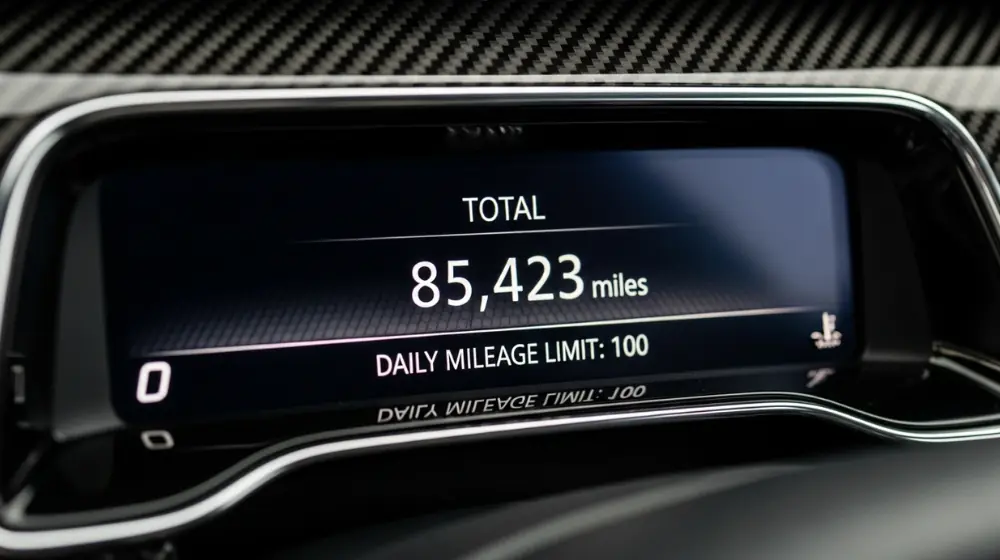
راهنمای کامل شرایط اجاره خودرو بدون راننده در ترکیه و امارات
اجاره خودرو بدون راننده، به عنوان راهکاری انعطافپذیر برای سفرهای درونشهری، سفرهای کاری، و مدیریت نیازهای حمل و نقل در غیاب مالکیت خودرو، محبوبیت فزایندهای یافته است. با این حال، استفاده از این خدمت نیازمند درک دقیق از الزامات قانونی، مدارک تضمینی، و بهویژه تعهدات مالی است که فراتر از صرفاً پرداخت هزینه اجاره روزانه میروند. این گزارش تخصصی به تشریح کامل شرایط اجاره خودرو بدون راننده در امارات و ترکیه میپردازد و پیچیدگیهای مرتبط با ضمانت، بیمه و مسئولیتهای استفادهکننده را شفافسازی میکند.
تعریف اجاره خودرو بدون راننده و مزایای آن
سرویس اجاره خودرو بدون راننده به مشتری این امکان را میدهد که با ارائه ضمانتهای لازم، یک اتومبیل را برای مدت معینی در اختیار بگیرد و خود رانندگی آن را بر عهده گیرد. شرکتهای معتبر در دبی و ترکیه معمولاً خودروهایی با مدل بالا و کارکرد مناسب ارائه میدهند که همگی مجهز به بیمهنامههای پایه یا کامل هستند تا تجربه استفاده بهینه و ایمن را فراهم آورند. انتخاب این روش به فرد امکان میدهد تا آزادی عمل بیشتری در طول سفر یا در انجام امور روزمره داشته باشد، بدون آنکه دغدغههای مربوط به مالکیت بلندمدت خودرو متوجه او باشد.
شروط صلاحیت فردی: سن و گواهینامه
برای اجاره خودرو، متقاضی باید واجد شرایط پایه باشد. شرط سنی برای اجاره خودرو بدون راننده در دبی و ترکیه بهصورت کلی اغلب داشتن حداقل ۲۱ سال تمام است؛ برای برخی خودروهای لوکس یا سوپرلوکس، شرکتها حداقل سن ۲۵ یا حتی بالاتر را تعیین میکنند. علاوه بر سن، داشتن گواهینامه رانندگی معتبر نیز یک الزام قطعی محسوب میشود؛ در دبی و امارات، ساکنان معمولاً باید گواهینامه امارات (UAE licence) ارائه دهند و گردشگران میتوانند از گواهینامه کشور مبدا همراه با مجوز بینالمللی رانندگی (IDP) استفاده کنند. در ترکیه نیز گردشگران معمولاً میتوانند با گواهینامه ملی خود (و در صورت نیاز IDP) خودرو اجاره کنند، در حالی که مقیمان ترکیه باید گواهینامه داخلی معتبر ارائه دهند.
اگر فرد متقاضی اصلی فاقد گواهینامه باشد، اجاره خودرو با معرفی یک فرد دارای گواهینامه به عنوان راننده اصلی امکانپذیر خواهد بود. در این حالت، حضور هر دو نفر در زمان انعقاد قرارداد و امضای تعهدات مربوطه معمولاً ضروری است. لازم به ذکر است که شرکتهای اجارهدهنده در ارزیابی ریسکهای مختلف، برای مشتریان خارجی ممکن است شرایط سنی سختگیرانهتری اعمال کنند یا برای خودروهای گرانقیمت شرط سنی بالاتری تعیین نمایند.
حداقل زمان اجاره:
به منظور توجیه اقتصادی و مدیریت هزینههای عملیاتی و لجستیکی (مانند آمادهسازی، بازرسی فنی و امور اداری قرارداد)، کرایه ماشین بدون راننده در بسیاری از شرکتهای فعال در دبی و ترکیه مشمول محدودیت زمانی است. در عمل، حداقل زمان اجاره معمولاً از سوی شرکتها تعیین میشود و نمونههای رایج شامل اجارههای روزانه (با حداقل ۱ تا ۳ روز بسته به سیاست شرکت) و قراردادهای ماهیانه است. تعیین حداقل زمان به شرکتهای اجارهدهنده کمک میکند تا هزینههای ثابت مربوط به هر قرارداد را پوشش دهند، زیرا اجارههای بسیار کوتاهمدت از لحاظ مالی و مدیریتی برای برخی از شرکتها مقرونبهصرفه نیست.

مدارک مورد نیاز و ابزارهای اعتبارسنجی
یکی از مهمترین مراحل در اجاره خودرو، ارائه مدارک شناسایی و تضمینی است. این مدارک، فراتر از احراز هویت صرف، ابزارهایی برای اعتبارسنجی مشتری و مدیریت ریسکهای حقوقی و مالی توسط شرکت اجارهدهنده محسوب میشوند. در دبی، مدارک معمولاً شامل گذرنامه و مهر ورود یا ویزا (برای گردشگران)، گواهینامه رانندگی و کارت اماراتی (Emirates ID) برای مقیمان است؛ در ترکیه، مدارک شامل گذرنامه یا کارت هویت اتحادیه اروپا (برای شهروندان اتحادیه)، گواهینامه رانندگی و کارت اعتباری برای بلوکه شدن ودیعه میباشد.
مدارک شناسایی و احراز هویت اولیه:
علاوه بر مدارک شناسایی معتبر، مؤسسات اجاره خودرو در دبی و ترکیه اغلب درخواست رویت مدارک تضمینی دیگر و همچنین احراز محل سکونت و مدارک مربوط به اشتغال مشتری را دارند، به ویژه در قراردادهای بلندمدت یا برای خودروهای لوکس. شرکتهای بینالمللی و محلی هر دو ممکن است از طریق بررسیهای آنلاین و ادارات دولتی مربوطه، اعتبار مدارک را استعلام کنند.
دلیل الزام احراز محل سکونت: فراتر از بوروکراسی
احراز محل سکونت دارای دو بعد قانونی و تجاری حیاتی است:
-
الزام نهادهای راه و ترابری و ثبت محلی: در دبی، مؤسسات مرتبط از جمله اداره راه و ترابری (RTA) و شرکتهای بیمه برای اطمینان از بهروزرسانی اطلاعات و تسهیل امور بیمهای و حقوقی، از ارائه مدارک اقامت (مانند Emirates ID یا مهر ویزا و پاسپورت) استفاده میکنند. در ترکیه، تأیید محل سکونت معمولاً از طریق سامانههای دولت الکترونیک مانند e-Devlet یا اداره ثبت نفوس (Nüfus) و مدارک اقامت انجام میشود.
-
منطق تجاری شرکت (مدیریت ریسک): برای شرکتهای اجارهدهنده در هر دو بازار، احراز محل سکونت دو هدف عمده دارد:
-
پشتیبانی ۲۴ ساعته: دسترسی به آدرس دقیق مشتری، امکان ارائه خدمات پشتیبانی سریع در صورت بروز مشکل فنی یا حادثه در طول مدت اجاره را فراهم میسازد.
-
پیگیری بازگشت خودرو: در سناریوهای پرریسک که مستأجر پس از اتمام قرارداد خودرو را عودت نمیدهد، اجارهبها را پرداخت نمیکند یا پاسخگو نیست، اطلاعات محل سکونت و اشتغال به عنوان ابزاری کلیدی برای پیگیری حقوقی و بازگرداندن خودرو مورد استفاده قرار میگیرند.
-
الزام به تأیید دقیق محل سکونت (که در دبی معمولاً با استفاده از Emirates ID و برای گردشگران با بررسی مهر ویزا و پاسپورت انجام میشود و در ترکیه از طریق سامانههای دولتی و مدارک اقامت پیگیری میگردد)، نشاندهنده این است که شرکتهای اجارهدهنده، علاوه بر مدیریت ریسک تصادف (که تحت پوشش بیمه است)، بر مدیریت ریسک عدم بازگشت خودرو یا کلاهبرداری نیز تمرکز ویژهای دارند.
مدارک شغلی: یک عامل اعتبارسنجی
مدارک شغلی، اگرچه در بسیاری از موارد الزام قانونی قطعی برای اجاره خودرو نیستند، اما به عنوان جزئی از اطلاعات پایه و ابزار اعتبارسنجی، نقش مهمی در ایجاد تعامل و اطمینان میان اجارهدهنده و مستأجر دارند. ارائه این مدارک (مانند گواهی اشتغال یا فیش حقوقی) اعتبار مشتری را افزایش میدهد. مستأجرینی که دارای شغل آزاد هستند، در ترکیه میتوانند پروانه کسب خود را و در دبی مدارک مشابه اشتغال را ارائه دهند تا پس از عودت سالم خودرو، آن را پس بگیرند یا به عنوان شواهد اعتباری مورد توجه قرار گیرد.

وثیقههای مالی و ضمانتنامهها
از آنجایی که اجاره خودرو بدون راننده مستلزم واگذاری یک دارایی ارزشمند به مستأجر است، ارائه وثایق مالی برای پوشش ریسکهای کلان (سرقت یا خسارت کلی) در هر دو بازار مرسوم است، اما سازوکارها با بازار ایران تفاوت دارند: در دبی و ترکیه، روش متداول استفاده از کارت اعتباری برای بلوکه کردن ودیعه یا ضمانتنامه بانکی است، در حالی که استفاده از چک یا سند ملکی کمتر رایج و بیشتر مربوط به بازارهای محلی خاص است.
انواع ضمانتهای اصلی
مشتری معمولاً موظف است یک ودیعه امنیتی (Security Deposit) ارائه دهد که اغلب به صورت بلوکه شدن مبلغی روی کارت اعتباری تنظیم میشود. این ودیعه برای پوشش خسارتهای احتمالی، خلافیها یا جریمهها مورد استفاده قرار میگیرد و پس از تحویل سالم خودرو و بررسی وضعیت، آزاد میگردد. در برخی موارد قراردادهای بلندمدت یا خودروهای بسیار لوکس ممکن است شرکتها شرایط اضافی مانند ارائه ضمانتنامه بانکی یا سفته بخواهند.
نقش سند ملکی به عنوان وثیقه
در بازارهای دبی و ترکیه شیوهٔ مرسومتر استفاده از کارت اعتباری (و یا در موارد خاص ضمانتنامه بانکی) برای تأمین ضمانت است، بنابراین تکیه بر اسناد ملکی بهاندازه برخی بازارهای محلی رواج ندارد؛ با این حال در قراردادهای بلندمدت یا هنگام اجاره خودروهای بسیار گرانقیمت، شرکتها ممکن است تضمینهای قویتری طلب کنند که توافقی و موردی است.
مفهوم ودیعه خلافی (Deposit for Fines)
ودیعه خلافی یا همان دپوزیت، مبلغی نقدی یا بلوکهشده روی کارت اعتباری است که برای پوشش جرائم رانندگی احتمالی (خلافی) در طول دوره استفاده از خودرو دریافت میشود. مستأجر مسئول تمامی تخلفات رانندگی است و روند استعلام و صدور هزینههای مربوطه بسته به کشور و شرکت اجارهدهنده متفاوت است.
فرآیند بازپرداخت ودیعه: این ودیعه تا زمانی که استعلام کامل خلافیها انجام شود (در بسیاری از شرکتها معمولاً چند روز پس از عودت خودرو)، نزد شرکت باقی میماند. در صورت عدم ثبت جریمه، مبلغ ودیعه به مشتری بازگردانده میشود. نکته مهم این است که در دبی و ترکیه معمولاً ودیعه به صورت آزادسازی (release) روی کارت اعتباری انجام میشود و نه برداشت نهایی مگر اینکه خسارتی محقق شده باشد.

محدودیتهای استفاده و پیمایش
برای حفظ ارزش خودرو، مدیریت استهلاک و کنترل هزینههای بلندمدت نگهداری، شرکتهای اجارهدهنده در دبی و ترکیه محدودیتهایی را برای استفاده از خودرو و میزان مسافت پیموده شده تعیین میکنند. مستأجر موظف است در نگهداری خودرو استیجاری نهایت دقت را به کار برده و از آن به نحو بهینه استفاده نماید.
قوانین پیمایش بر اساس مدت قرارداد
میزان کیلومتر مجاز بر اساس مدت قرارداد مشخص میشود. شرکتها معمولاً بسته به نوع قرارداد (روزانه، ماهیانه) و کلاس خودرو تعرفههای مجزا برای کیلومتر اضافی اعمال مینمایند. بهعنوان نمونه، نمونههای مرسوم بازارها عبارتاند از:
-
قرارداد روزانه: کیلومتر مجاز حرکت به ازای هر روز میتواند متغیر باشد (مثلاً نمونههایی معادل ۲۰۰–۲۵۰ کیلومتر در روز رایج است) و مقدار دقیق باید در قرارداد ذکر شود.
-
قرارداد ماهیانه: حد مجاز پیمایش برای قراردادهای ماهیانه نیز بسته به سیاست شرکت متفاوت است (مثلاً حدود ۵۰۰۰–۶۰۰۰ کیلومتر در ماه برای قراردادهای استاندارد مشاهده میشود).
اگر حرکت خودرو بیش از حد مجاز مقرر باشد، مستأجر موظف است مبلغ مازاد را به ازای هر کیلومتر اضافی، مطابق با تعرفه شرکت، پرداخت نماید. این رویه در هر دو بازار دبی و ترکیه مرسوم است و تعرفهها بسته به کلاس خودرو و سیاست شرکت متغیر است.
تفاوت محدودیت پیمایش بر اساس کلاس خودرو
محدودیت کیلومتر مجاز به طور مستقیم به کلاس خودرو و هزینه استهلاک آن بستگی دارد. خودروهای گرانقیمت و لوکس به دلیل هزینه بالای قطعات و کاهش شدیدتر ارزش در برابر کارکرد بالا، محدودیتهای سختگیرانهتری دارند. اعمال محدودیتهای بسیار کمتر (مانند حدود ۱۰۰ کیلومتر در روز) برای خودروهای سوپر لوکس، استراتژی شرکتها برای مدیریت اقتصاد استهلاک است. این محدودیت، ریسک مالی شرکت در برابر کاهش شدید ارزش این داراییها را کنترل میکند و به طور غیرمستقیم، هزینه سرمایهگذاری را بر اساس الگوی مصرف تنظیم مینماید.
جمعبندی و توصیههای نهایی:
اجاره خودرو بدون راننده در دبی و ترکیه یک فرآیند مالی-حقوقی است که نیازمند شفافیت کامل در قرارداد و آگاهی مستأجر از تعهدات پنهان است. سیاستها و رویهها بین شرکتها و بر اساس کلاس خودرو و وضعیت مشتری (مقیم یا گردشگر) متفاوت است؛ بنابراین مطالعه دقیق قرارداد و پرسش درباره جزئیات قبل از امضا ضروری است.
توصیههای کلیدی برای انتخاب آگاهانه
مهمترین فاکتورها برای مشتری، مدیریت ریسکهای مالی ناشی از حوادث است:
-
شفافسازی فرانشیز و افت قیمت: پیش از امضای قرارداد، حتماً شرایط دقیق فرانشیز، نحوه محاسبه و مسئولیت پرداخت افت قیمت خودرو، و هزینه خواب خودرو در طرح انتخابی خود را به صورت کتبی دریافت و مطالعه کنید. در دبی و ترکیه شرکتها معمولاً مقادیر فرانشیز را بهصورت واضح در قرارداد و یا بهعنوان گزینههای بیمهای مختلف (Basic، Comprehensive، یا پوششهای تکمیلی) ارائه میدهند.
-
مدیریت ریسک در طرحهای بیمهای: اگر قصد اجاره خودروهای لوکس یا گرانقیمت را دارید یا برنامه سفر طولانی دارید، انتخاب طرحهای بیمه جامعتر به شدت توصیه میشود. این طرحها، اگرچه هزینه اجاره روزانه را افزایش میدهند، اما شما را از مسئولیتهای مالی سنگین و ناگهانی ناشی از حوادث معاف میسازند. در دبی نیز امکان افزودن پوششهای اضافی یا خرید بیمههای شخص ثالث مکمل وجود دارد؛ در ترکیه نیز شرکتها بستههای بیمهای متنوعی عرضه میکنند که لازم است مقایسه شوند.
-
ضمانتهای مالی: آگاهی داشته باشید که در بازار دبی و ترکیه تکیه اصلی بر مکانیزمهای مدرنتر مانند بلوکه شدن مبلغ روی کارت اعتباری یا ضمانتنامه بانکی است تا ریسکهای کلاهبرداری و عدم بازگشت دارایی را مدیریت کنند. این موضوع تفاوت عمدهای با برخی بازارهای دیگر دارد که ممکن است به چک یا اسناد ملکی متکی باشند؛ بنابراین پیش از تحویل خودرو درباره مقدار ودیعه، روش بلوکهسازی و زمان آزادسازی آن پرسش کنید.
مطالب مرتبط







